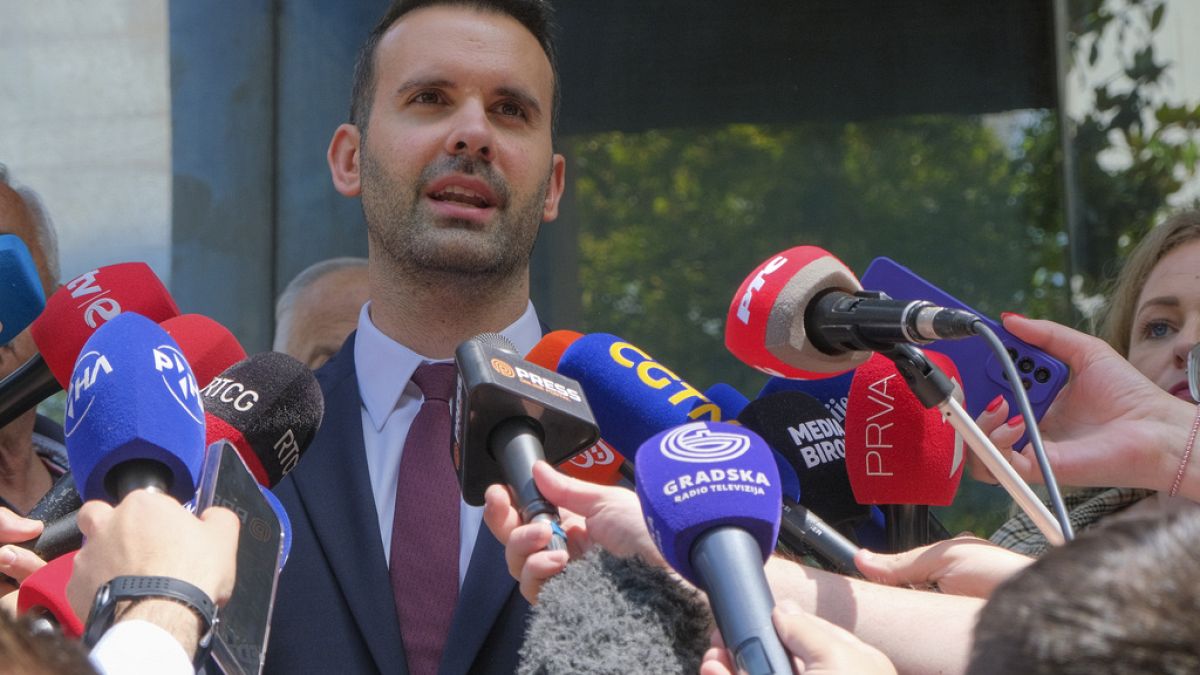Elections in Montenegro are the first in more than 30 years that do not feature Milo Djukanovic, Europe's longest-ruling contemporary politician.
Montenegro’s Europe Now Movement (PES) has won a snap election, according to preliminary results.
The pro-EU party - which also wants closer ties with neighbouring Serbia - received 25.6% of the vote, based on a projection by the Center for Monitoring and Research (CEMI).
“This is a great victory … we will speak with everybody who shares our values,” said PES leader Milojko Spajic.
Montenegro held an early parliamentary election on Sunday. It could put an end to deep political divisions and years of instability, which have hampered the small Balkan country's path to EU membership.
The pro-European Democratic Party of Socialists (DPS) and a group of small allied parties, which ruled Montenegro between 1990 and 2020, came in second with 23.7% of the vote, according to pollster CEMI.
They made this projection on the basis of 98.7% of ballots counted in a representative sample of 400 polling stations across the country.
Some 542,000 voters were eligible to choose from 15 parties and coalitions fielding candidates, ranging from groups that are staunchly pro-Western to ones that are pro-Serbian and pro-Russian.
Economy and living standards dominated campaign
Unlike in previous elections, which focused on whether the country should lean towards the EU or Russia and Serbia, the economy and living standards dominated the agenda this time.
“Finally, we are deciding on the quality of life, rather than on the East or West,” Tanja Bojovic, 38, said as she cast her ballot in the Montenegrin capital, Podgorica.
“I expect the victory of those who will lead us to a better life.”
The election was Montenegro’s first in more than 30 years that does not feature Milo Djukanovic, who served almost continuously as the country’s prime minister or president since 2001.
He lost a presidential election in April and has taken a back seat in national politics.
Polls and analysts had predicted Europe Now, a newly formed centrist movement, was most likely to be the top vote-getter but without enough seats in the 81-seat parliament to form a new government on its own.
The Democratic Party of Socialists, the party formerly led by Djukanovic, experienced a decline in popularity after three decades of dominance and has new leadership looking for a chance to make a comeback.
Also running were candidates from the pro-Serb and pro-Russian Democratic Front, a party considered likely to emerge as a kingmaker in the formation of a future coalition government.
Political promises not based on economic reality
Political analyst Ana Nenezic, executive director of the Centre for Monitoring and Research, said the focus on the economy “is beneficial for the society" but promises of salary hikes made by politicians “are not based on a real economy.”
She added that based on the latest election forecasts, “I will be really surprised if we get a politically stable government.”
Djukanovic led Montenegro to independence from Serbia in 2006 and defied Russia to join NATO in 2017.
An alliance dominated by parties seeking closer ties with Serbia and Russia ousted the Democratic Party of Socialists from power in the previous parliamentary elections, held in 2020.
The new ruling coalition, however, soon plunged into disarray, which stalled Montenegro’s path toward the EU and created a political deadlock.
The government fell in a no-confidence vote last year but remained in office for months because of the stalemate.
Montenegro, a picturesque Adriatic Sea country of about 620,000 people, was once viewed as the country first in line to join the EU from the Western Balkans.
